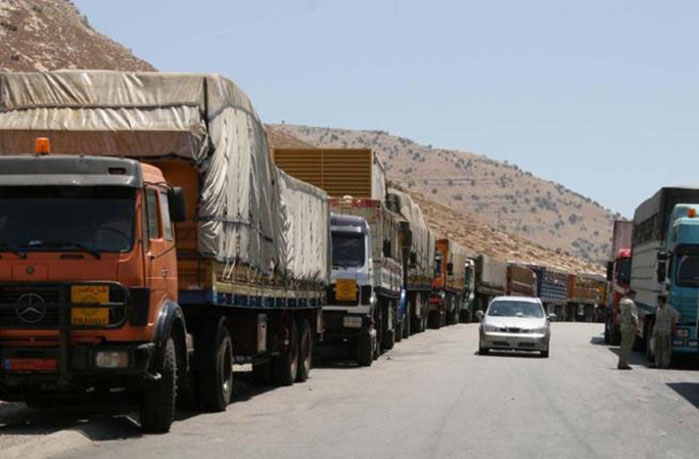Iran should give land transit route permits to Pakistan for Russia, Central Asian states

ISLAMABAD: Pakistan has asked Iran to lift restrictions and resume the issuance of transit permits for transportation of Pakistani goods via land route to Russia, Central Asian states and Middle Eastern countries.
Iran had stopped issuing transit permits three to four years ago for Pakistani goods like fodder, wheat straw, carrot and garlic for export through the Islamic republic to Russia, Kyrgyzstan, Iraq, Bahrain, Oman and the United Arab Emirates (UAE).
Minister for National Food Security and Research Sahibzada Mehboob Sultan took up the matter with Iran Ambassador Mehdi Honardoost in a meeting on Thursday.
Products from Balochistan had earlier been exported through the shortest land route via Iran, but due to curbs on the issuance of transit permits to Pakistan, the goods exporters were later forced to ship cargo via sea. However, the sea route is expensive and cumbersome, discouraging some exporters.
The Iranian ambassador told the food security minister that he would communicate the request to the quarters concerned in Iran. He pointed out that the Iranian supreme leader had directed that “all doors should be open for Pakistan”.
Pakistan and Iran share geographical border which provides an opportunity to trade in agricultural products. There are, however, certain challenges in the way of export and import of agricultural commodities.
The two countries signed an agreement in 2005 for the issuance of sanitary and phyto-sanitary (SPS) certificates for the export of Pakistani mango and citrus to Iran. The scope of the agreement was widened with the visit of Iranian quarantine experts in 2015 as the number of hot water treatment facilities were enhanced from three to 16.
The food security minister emphasised that both countries shared a long border and they should exploit the potential and should not miss the opportunities which the border offered.
He told the ambassador that Pakistan had a state-of-the-art meat processing plant in Karachi and it had the potential to export required quantity of meat to Iran. “It is equipped and capable of exporting meat to any country of the world. An Iranian team can visit the facility,” he said.
He pointed out that Pakistani mangoes were being exported to different countries of the world to the satisfaction of importing countries, adding that Iranian reservations about the hot water treatment plants could be addressed.
He suggested that Iranian officials and experts could visit the treatment plants where they would find that the plants were working with state-of-the-art technology and the exported mangoes met all international standards.
Pakistan has more than 34 hot water treatment plants and processed fruit is exported as far as Australia. The minister suggested that both countries should mutually settle all issues related to SPS measures.
National Plant Protection Organisations (NPPO) of both the countries can engage in frequent collaboration to amicably resolve the quarantine issues in order to promote bilateral trade.
The minister emphasised that both countries could cooperate in innumerable ways and it was in their best interest to enhance interaction and expand trade volumes.
“We could promote bilateral relations through tangible means – trade and business – and this will discourage smuggling through the Pakistan-Iran border,” he said.
The ambassador pointed out that meat and livestock had big demand in Iran, which were imported from Brazil and other Latin American countries but they cost them immensely. “Iran is aware of Pakistan’s potential and is more eager to import from Pakistan,” he said.
It was proposed that through a joint venture an abattoir could be set up at the Taftan border for fresh meat export from Pakistan.
The matter of Punjab Agriculture and Meat Company (Pamco) was also brought to the notice of the Iranian side. The Iranian government has 15-16% shareholding in the company, but currently no export benefit was being received from it.
Honardoost said, “we are eager to talk on every forum to benefit from Pakistan meat.”
The ambassador expressed the desire for overseas farming, to which the minister said Pakistan would look into the matter and if such an option was available it would be communicated to Iran.
Both the sides stressed the need for enhancing the exchange of delegations for better understanding and settlement of issues.






